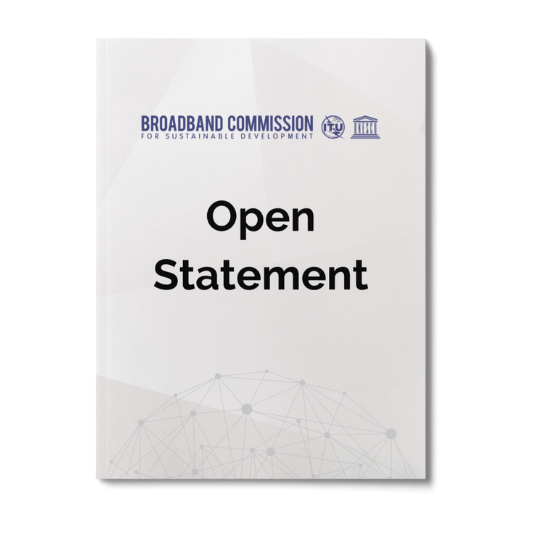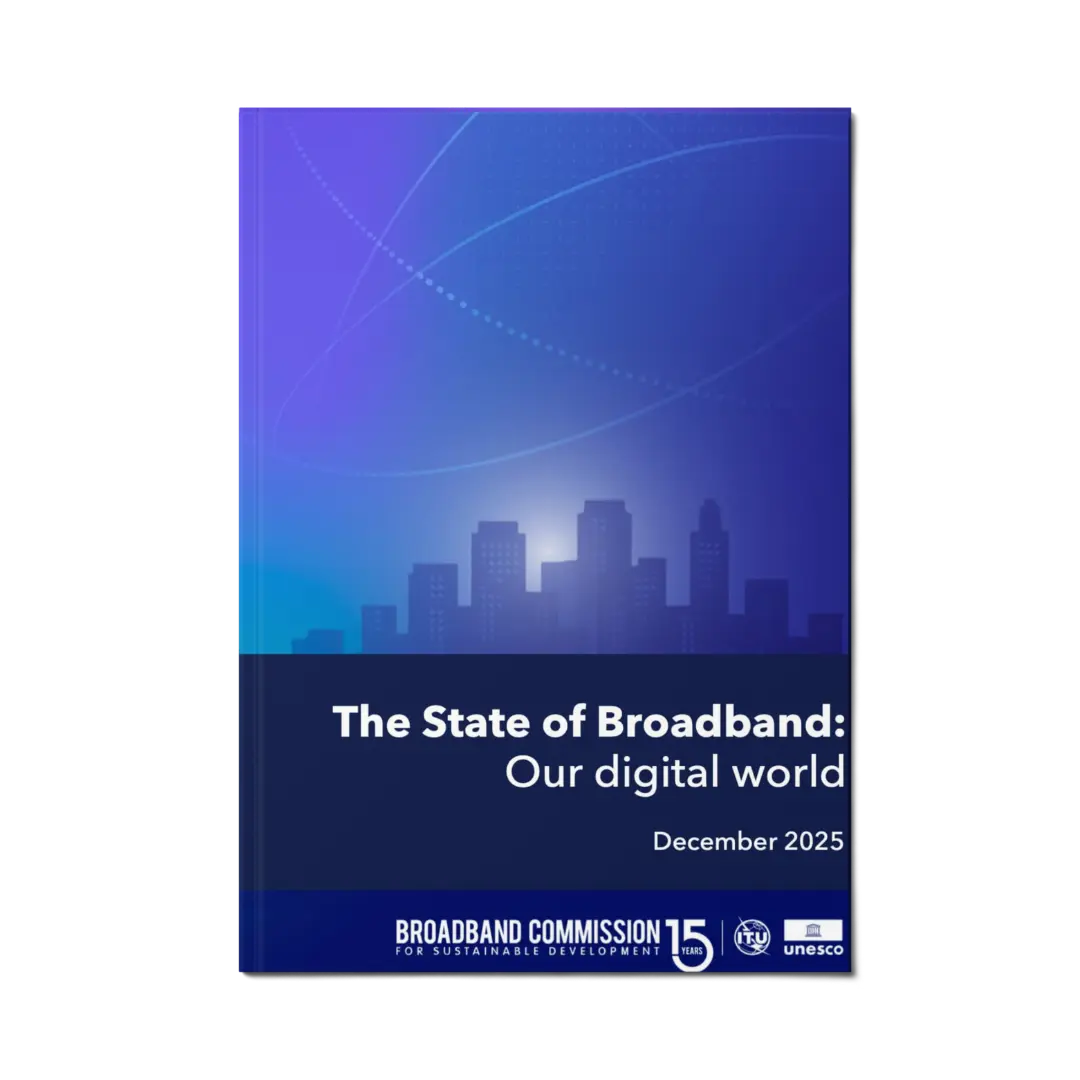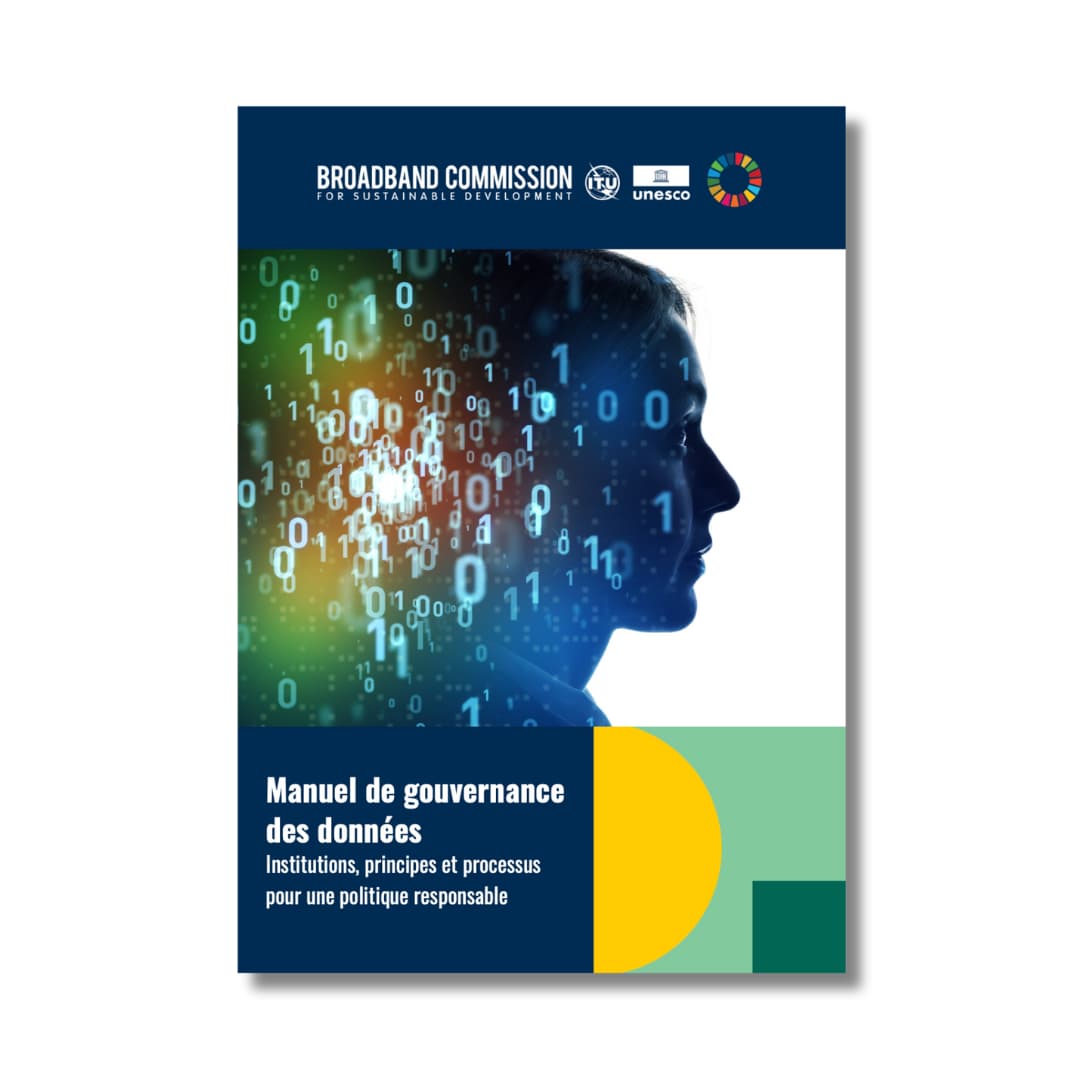The UN Broadband Commission for Sustainable Development addresses this Open Statement to the United Nations Conference on Housing and Sustainable Urban Development (Habitat III) from 17 to 20 October 2016 in Quito, Ecuador.
We, the UN Broadband Commission for Sustainable Development2 , affirm our sincere conviction and belief in the vital role of broadband for building and transforming cities and human settlements, and for achieving the goals of the New Urban Agenda and the UN Sustainable Development Goals (SDGs). We urge attendees to the UN Conference on Housing and Sustainable Urban Development (Habitat III) to show their support for the global roll-out of broadband infrastructure, devices, applications and services to ensure inclusive economic growth and lift people out of poverty around the world.
Today, over half the world’s population lives in cities, a proportion which may increase to over 70% over the next thirty years. Although cities occupy a mere 2% of total land surface, cities account for 54% of the world population (World Bank, 2016 3 ), 70% of GDP, 60% of global energy consumption, 70% of greenhouse gas emissions and 70% of global waste (UN-Habitat, 20164 ). This makes sustainable urban development centred on people and the respect of human rights one of the major priorities and challenges of today’s societies.
Broadband and Information and Communication Technologies (ICTs) are vital enablers of the three pillars of sustainable development – economic development, social development and environmental protection. Broadband and ICTs can contribute to the New Urban Agenda’s Goals of helping to end poverty and hunger in all its forms and dimensions, reduce inequalities, promote sustained, inclusive, and sustainable economic growth, achieve gender equality and the empowerment of all women and girls, enhance education, improve human health and well-being, foster innovation and protect the environment.
Broadband can help drive sustained, inclusive and sustainable economic growth, and end poverty, in both urban areas, as well as more rural areas, acting as a brake on migration to towns and cities. A body of research and evidence suggests that broadband can add to Gross Domestic Product (GDP), drive innovation and add jobs in in new sectors, boost labour productivity and energy efficiency. Broadband and ICTs are important enablers driving digital transformation and diversification of national economies and introducing new knowledge-intensive, high-growth products and services.
Broadband can help achieve gender equality and the empowerment of all women and girls. Broadband infrastructure can be used to improve education, literacy and awareness of people’s basic rights, including women’s and girls’. Women and girls can be empowered by lifelong learning and basic competencies in digital skills, enhancing their access to resources, markets, institutional rights, improved livelihoods and 2 new and better-paid job opportunities. Integrating ICTs into education and learning processes can help ensure that online learning is available, accessible and inclusive.
Broadband can improve human health and well-being. For patients, access to broadband and health information can improve awareness of basic hygiene and prevention practices. For clinicians and health practitioners, broadband can improve access to improved information, expertise, imagery and remote diagnosis, advancing early diagnosis and treatment. For health providers and health systems, digital health information systems (HIS) can improve health systems, monitoring and feedback, and help improve overall health outcomes. Improved ICT infrastructure, including basic mobile phones, can be used to connect rural clinics, midwives and community health workers, to provide connectivity in times of emergency, to access and organize support services, and to improve the treatment options available, at both the individual patient level as well as for overall public services. Innovation in applications, devices, and data analytics, cloud computing as well as M2M communications, leveraging broadband connectivity, will help to create a connected environment for the betterment and wellbeing of society.
Broadband can foster resilience and help protect the environment. Smart grids can help improve energy supply and usage and reduce carbon footprints. Broadband can help improve the efficient supply and management of the world’s increasingly scarce fresh water sources. Broadband and ICTs can also be used to track and monitor planetary processes (including climate change, changes in ocean temperature, deforestation, thinning of the polar ice caps, animal migration, and land use). Accumulating analysis and improving data can complement scientific research and track developments in all these processes, including the impact of changes in policy.
Cities are facing major challenges in the areas of security threats, migration crises, natural disasters of potentially increasing severity due to climate change (e.g. floods, earthquakes, forest fires). Broadband can support cities’ emergency response through public safety communication solutions and the reliable and secure networks and communication devices, drones used by police or fire-brigades to monitor emergency situations, provide live pictures, search for victims or deploy rescue equipment etc.
Broadband networks are vital for achieving sustainable urban development and for ensuring that no one is left behind. We urge you to capitalize on the benefits of broadband for achieving many of the goals of the New Urban Agenda. We must all work together to close the technological divide and to accelerate a digital and data revolution for sustainable development. Moreover, we must work together to ensure that ICT, broadband-based technologies and data analytics are properly harnessed to empower people, without contributing to the maintenance, or deterioration of, inequalities within and between cities. Let us grasp this vital opportunity to strive for a world where every citizen can potentially experience the opportunities and benefits of universal, affordable and inclusive access and connectivity to ICTs.





